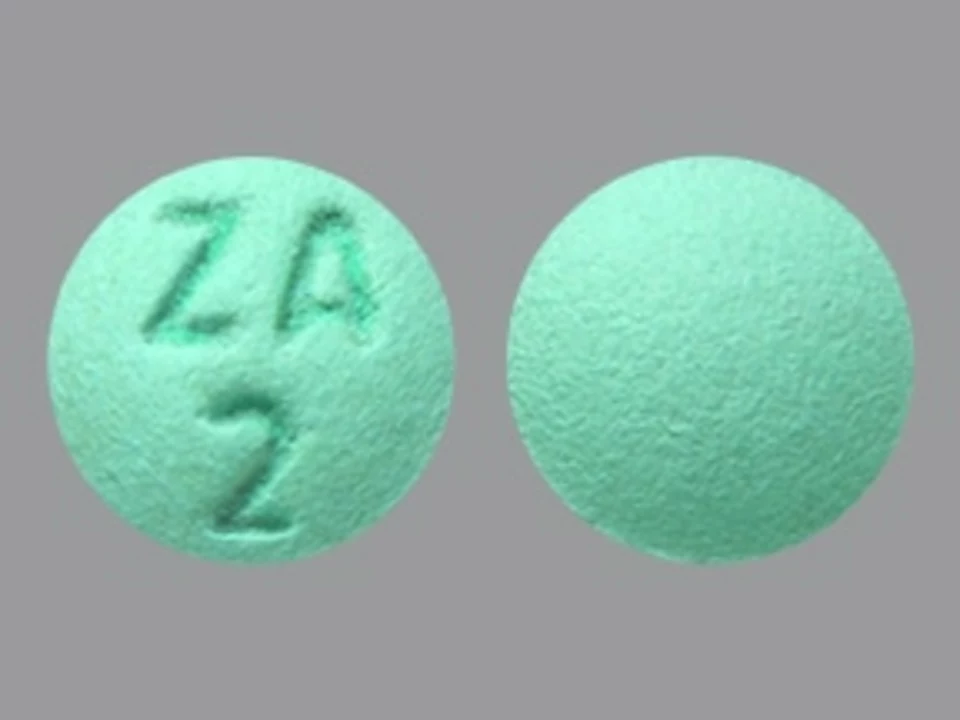Introduction to Amitriptyline and Alcohol
As a blogger who has personally experienced the effects of both amitriptyline and alcohol, I feel it's essential to discuss the risks associated with combining these two substances. Amitriptyline is a tricyclic antidepressant that is commonly prescribed to help manage symptoms of depression and other mental health conditions. Alcohol, on the other hand, is a widely consumed beverage that can have various effects on our mental and physical health. Combining these two substances can lead to several risks that are important to understand.
Amitriptyline Overview and Uses
Amitriptyline is a prescription medication that belongs to a class of drugs called tricyclic antidepressants (TCAs). It is primarily used to treat depression, but it may also be prescribed for other mental health conditions, such as anxiety, panic disorder, and obsessive-compulsive disorder. In some cases, it can be used for the treatment of chronic pain, migraines, and insomnia. Amitriptyline works by increasing the levels of certain chemicals in the brain that help regulate mood and alleviate pain.
Alcohol: A Common Social Beverage with Health Implications
Alcohol is a widely consumed beverage that is often associated with social gatherings and celebrations. While moderate alcohol consumption can have some health benefits, excessive drinking can lead to numerous short-term and long-term health problems. These include liver damage, heart disease, addiction, impaired cognitive function, and an increased risk of accidents and injuries. Moreover, consuming alcohol can have a negative impact on mental health, exacerbating symptoms of depression and anxiety.
The Risks of Combining Amitriptyline and Alcohol
When amitriptyline and alcohol are combined, several risks can arise. Both substances have the potential to affect mental and physical health, and their combined effects can lead to dangerous consequences. In the following sections, we will discuss the various risks associated with mixing amitriptyline and alcohol.
Increased Drowsiness and Dizziness
Both amitriptyline and alcohol can cause drowsiness and dizziness. When taken together, these effects can be intensified, leading to a higher risk of accidents, falls, and other injuries. This can be particularly hazardous for individuals who need to operate heavy machinery or drive a vehicle.
Worsening of Depression Symptoms
Amitriptyline is prescribed to help alleviate symptoms of depression. However, alcohol is a depressant that can worsen depression symptoms, counteracting the positive effects of amitriptyline. This can result in a diminished response to the medication and a prolonged recovery period.
Increased Risk of Overdose
Combining amitriptyline and alcohol can increase the risk of an overdose. Both substances can depress the central nervous system, and when consumed together, they can have a synergistic effect that can be life-threatening. Symptoms of an overdose can include difficulty breathing, seizures, and loss of consciousness.
Delayed Cognitive Function and Impaired Judgment
Both amitriptyline and alcohol can impair cognitive function and judgment. Consuming alcohol while on amitriptyline can lead to decreased mental alertness and difficulty making sound decisions. This can increase the risk of engaging in risky behaviors, such as driving under the influence or engaging in unprotected sex.
Increased Risk of Liver Damage
Amitriptyline is metabolized in the liver, and excessive alcohol consumption can lead to liver damage. Combining amitriptyline and alcohol can place an increased burden on the liver and increase the risk of liver damage and related health problems.
Interference with Other Medications
Alcohol can interact with various medications, including amitriptyline. Consuming alcohol while taking amitriptyline can interfere with the drug's effectiveness and increase the risk of side effects. Additionally, alcohol can interact with other medications you may be taking, leading to potentially dangerous consequences.
Safe Practices and Alternatives to Alcohol
If you are taking amitriptyline, it is crucial to be mindful of the risks associated with consuming alcohol. Discussing your alcohol consumption with your healthcare provider can help you determine if it is safe for you to drink while on this medication. In some cases, you may need to abstain from alcohol or limit your intake to reduce the risks associated with combining these substances.
For those who choose to avoid alcohol, there are several non-alcoholic alternatives available. These include non-alcoholic beers and wines, mocktails, and a wide range of soft drinks. Engaging in activities that promote relaxation and stress reduction, such as exercise, meditation, or hobbies, can also be beneficial for mental health and help to reduce the desire to consume alcohol.
Conclusion
In conclusion, combining amitriptyline and alcohol is associated with several risks that can negatively impact both physical and mental health. It is essential to be aware of these risks and to discuss your alcohol consumption with your healthcare provider to ensure your safety and well-being while taking amitriptyline. By adopting safe practices and exploring alternatives to alcohol, you can protect your health and maximize the effectiveness of your treatment.



Prema Amrita
Combining amitriptyline and alcohol is a dangerous game. The liver metabolizes both, and stacking them increases hepatotoxicity risk significantly. I've seen patients with elevated LFTs after just one weekend of drinking while on TCAs. Don't risk it. Your brain already struggles enough without adding ethanol to the mix.